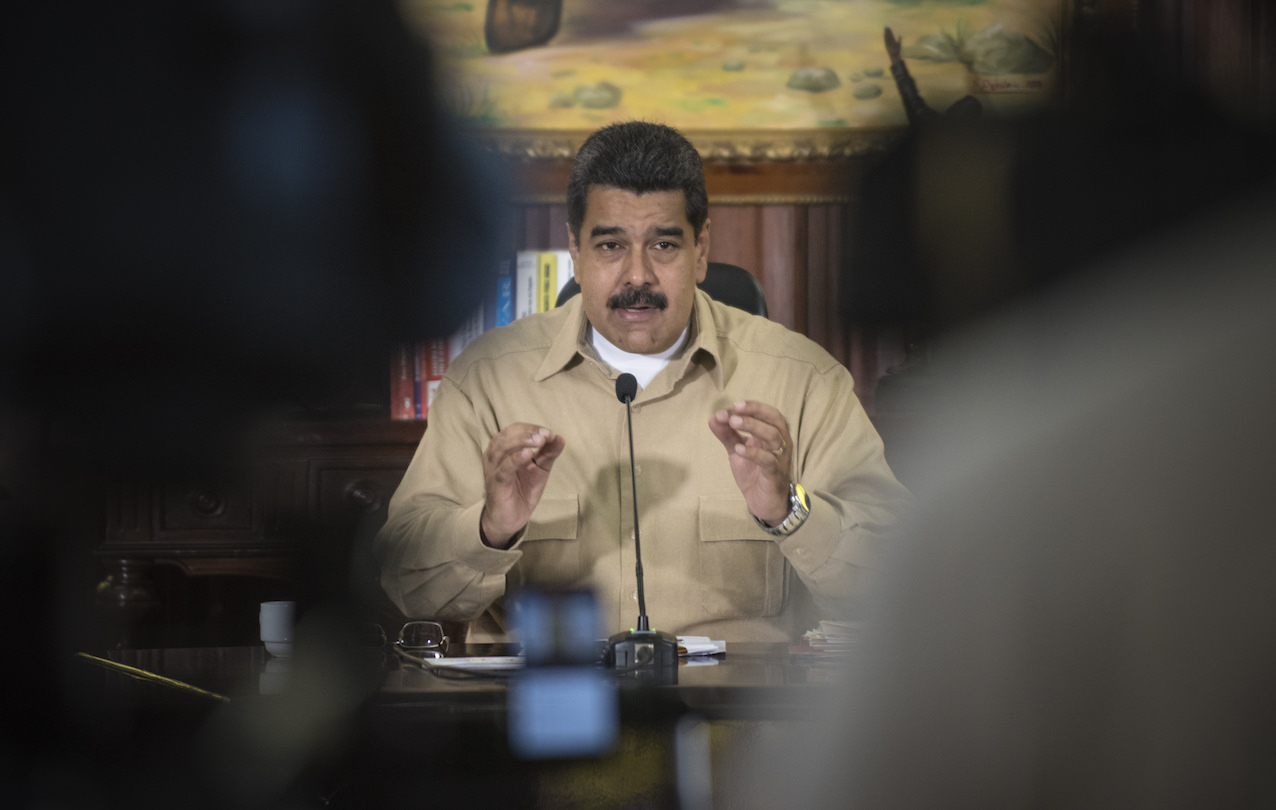In terms of foreign policy damage, whatever harm Justin Trudeau did by parading around India in colourful outfits is a nothing-burger compared to the severe hardship he is inflicting on Venezuela.
And yet media commentators have been full-throttle in denouncing the prime minister’s alleged wardrobe malfunction on his recent India trip while being silent — or downright supportive — of Trudeau’s decision last fall to join the Trump administration in imposing sanctions on the struggling South American nation.
Anyone following the international media coverage would conclude that the Venezuelan government is terribly autocratic and that Western nations, led by the U.S., have stepped in with sanctions out of concern over human rights abuses there.
A closer look suggests a different scenario that puts Western actions in a less laudable light: Washington is waging economic war against a nation that dared to rise up and reject U.S. control over its ample oil reserves.
The Obama administration targeted individual Venezuelans with sanctions, but the Trump administration’s sanctions are much broader, taking punishing aim at the country’s entire economy.
Sadly, Trudeau is backing up the U.S. bully, apparently hoping to win a reprieve from Trump’s arbitrary trade measures — a strategy that seems unfair to Venezuela and also likely futile. We’ll return to Canada’s sorry role in this saga in a moment.
Venezuela has been in Washington’s cross hairs ever since the dramatic 1998 election of Hugo Chavez, a charismatic, populist leader — and this is one case where the word “populist” legitimately applies.
Unlike the “populist” Donald Trump, Chavez actually came from humble roots as the child of Black and Indian parents, and actually championed his country’s large peasant population.
Indeed, unlike many Third World leaders who siphon off their nation’s wealth in cahoots with foreign multinationals and local elites, Chavez enraged Washington by nationalizing Venezuela’s oil and redirecting the wealth to health care, education, housing and food for the poor.
Venezuela’s wealthy elite, angry about losing their privileged position, vowed to overthrow Chavez — and briefly did in a violent 2002 coup, with the help of Washington, before being repelled two days later when hundreds of thousands of pro-Chavez demonstrators from poor neighbourhoods took to the streets of Caracas.
Many in the elite had worked for the U.S.-owned oil industry when it effectively ran the oil-rich nation. And, like the Cuban elite after Fidel Castro nationalized U.S.-owned industry there, the Venezuelan elite has remained close to Washington.
After the failed 2002 coup, Venezuela’s elite concentrated on demonizing Chavez — and Nicolás Maduro, his hand-picked successor, who narrowly won election following Chavez’s death from cancer in 2013.
Although lacking Chavez’s charisma, Maduro has continued to win elections even as the country’s economy has plunged, along with world oil prices. Frustrated, the opposition has adopted increasingly violent tactics — including a bizarre attack last year when rebels dropped grenades from a helicopter on the country’s Supreme Court.
Alfred de Zayas, a UN-appointed expert sent to investigate the chaos last fall, met with dozens of opposition activists as well as church and human rights groups, and concluded that the Maduro regime has made “major mistakes including excessive force by the police.”
But de Zayas also found that popular support for the Chavez revolution remains strong. And he accused anti-government demonstrators of having “attacked hospitals, nursery schools, burned ambulances and buses in order to intimidate the people. Is this not classic terrorism?”
The UN expert also explained that the sanctions — which he considers reminiscent of U.S. measures against Chile’s Salvador Allende in the 1970s — are aggravating the suffering of Venezuelans, and he called for them to end. “That would be the greatest help,” he said.
But Canada refuses to listen. Our sanctions aren’t as broad as Trump’s, but they lend Canadian credibility to penalizing Venezuela, thereby providing political cover for the harsh U.S. measures.
And so we continue to inflict sanctions on Venezuela, citing the lofty goal of defending human rights — even while we actively trade and sell arms to full-fledged dictatorships, such as Saudi Arabia.
What’s going on in Venezuela is a bitter class war, with millions of poor people committed to defending a revolution carried out in their name, and Canada taking the side of the wealthy, well-armed opposition.
Journalist and author Linda McQuaig interviewed Hugo Chavez in Caracas in 2004 for a book she wrote on the geopolitics of oil. Her book Shooting the Hippo: Death by Deficit and Other Canadian Myths was among the books selected by the Literary Review of Canada as the “25 most influential Canadian books of the past 25 years.” You can follow her on Twitter @LindaMcQuaig. A version of this column originally appeared in the Toronto Star.
Photo: Eneas De Troya/flickr
Like this article? Please chip in to keep stories like these coming.





